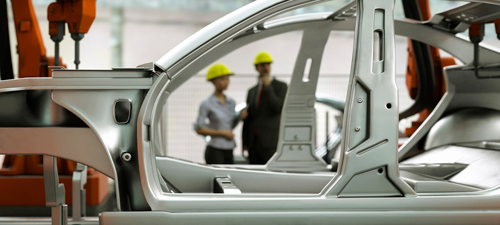WHAT YOU NEED TO KNOW ABOUT MATERIAL SELECTION
Material selection is aided by answering a few key questions about your product, so you can begin to narrow down your options.
What will the product be used for? Is it going to get banged around, or is it mostly for a cosmetic application?
How the part will be used makes a big difference in the resin you will need. You wouldn’t want to select polystyrene for a hammer and you don’t want a glass-filled polycarbonate nameplate.
Is it an indoor or outdoor application? Both?
UV light can affect the plastic material, so you’ll want to make sure you’re choosing resins that are well-suited to exposure for outdoor products.
Will the part be decorated with paint or an adhesive logo?
Paint and adhesives are not a good fit for polyethylene or polypropylene. A bezel that will be decorated will be a better fit using ABS or polycarbonate.
Will the part be load bearing in the high heat environment like inside an engine compartment? Will it need to be functional in subzero temperatures?
Heat deflection would be a key application criterion. For example in extreme temperatures glass-filled nylon 66 is a good choice, where a part created using acrylic, could risk a failure.
Is the product going to be high-volume (and therefore very price sensitive)?
A commodity plastic will likely be sufficient. Polyethylene and polypropylene are very competitively priced. Highly engineered components, on the other hand, may require more unique solutions. A polyphenylene sulfide is a very expensive material, but if it is going to replace a metal component it could still be great for cost savings.
Will the product be used in a chemical environment?
You don’t want to use polycarbonate in an application where a chemical like gasoline is present. You would do best to look towards an acetal or nylon, possibly polyethylene or polypropylene.
Good news: No matter what your requirements are, KASO can help you narrow down your options and draw upon recommendations from reputable material suppliers as needed.We offer many different types of plastics; because we purchase these resins in volumes that would likely fit your application, you’ll get to take advantage of these cost advantages!








 Molding services for Agricultural customers
Molding services for Agricultural customers